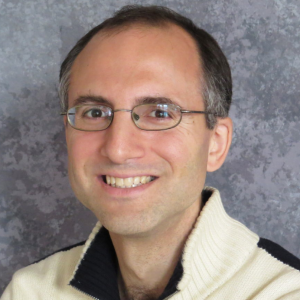NSU Newsroom
SharkBytes
Horizons
This version of NSU News has been archived as of February 28, 2019. To search through archived articles, visit nova.edu/search. To access the new version of NSU News, visit news.nova.edu.
This version of SharkBytes has been archived as of February 28, 2019. To search through archived articles, visit nova.edu/search. To access the new version of SharkBytes, visit sharkbytes.nova.edu.
Nova Southeastern University Welcomes International Astrophysicist For Exoplanets Talk
FOR IMMEDIATE RELEASE
FORT LAUDERDALE/DAVIE, Fla. – It seems the Cosmos has been in the news a lot lately. Pluto isn’t a planet; it is a planet; no, wait, it isn’t again. And lest we forget about the excitement swirling around the search for the illusive Planet 9, and the recently discovered habitable TRAPPIST-1 system.
Well, with that in mind, Nova Southeastern University (NSU) is pleased to welcome Dimitri Veras, Ph.D., a leading astrophysicist who is researching alien planets at University of Warwick (UK). Veras will give a presentation about his research into the area of “alien planets.” The presentation is scheduled from noon – 1 p.m. Fri., April 21 in NSU’s Mailman-Hollywood Building on its Fort Lauderdale/Davie Campus, 3301 College Ave. The event is free.
During his presentation – Extrasolar Planets: Famous Firsts, Boisterous Births, and Destructive Deaths – Veras will present the latest news about planets in our universe and show that a broad variety of the several thousand discovered planets exist far and near from our own solar system. Many of these “alien planets” are like Jupiter and Earth, but many other planets are mysterious, such as planets orbiting two or more suns (like the Star Wars planet Tatooine, the home planet of Luke Skywalker); free-floaters, which are rouge planets drifting in the Galaxy without a host star like the sun; or old planets that are orbiting dying stars.
Veras will give an overview of the current state of planet hunting, including the search for another earth (Earth 2.0), and the methods used in modern astrophysics to detect those planets. This talk is particularly interesting, because NASA recently announced the discovery of several earth-like planets that could harbor life.
Veras is welcomed by NSU associate professor of astrophysics, Dr. Stefan Kautsch in the Department of Chemistry and Physics at the university’s Halmos College of Natural Sciences and Oceanography. Kautsch is teaching this exciting topic to his students and at NSU’s Life-Long Learning Institute, and this talk provides a unique opportunity for NSU students and faculty, as well as the public, to learn more about this ‘hot topic’ in modern astronomy.
Here’s a little more about Dimitri Veras, Ph.D.:
His scientific interests:
I am an astrophysicist who researches planets in a wide variety of contexts, across both time and space. I have published academic articles about forming planets, destroying planets, young planets, old planets, planets close to the Solar System, planets far from the Solar System, free-floating planets, Tatooine-like planets, and Planet Nine. You can view some media attention regarding my work here from The Independent, National Geographic, New Scientist, Huffington Post, Discovery News, Sky & Telescope, USA Today, Universe Today, Astronomy Now, The Daily Mail, UPI, Welt der Physik, and AAAS Science.
His current research results:
My current research focus aims to answer some of the biggest mysteries regarding the ultimate fate of extrasolar planets – how they die, and how they can “pollute” very old stars known as “white dwarfs”. The Sun will become a white dwarf, and might very well be polluted by asteroids, comets or even planets such as the Earth!
His biography and current position:
I am currently a Research Fellow in both the exoplanet and white dwarf research groups at the University of Warwick. My biography includes postdoctoral research appointments at the University of Cambridge and University of Florida. I obtained my Ph.D. at the University of Colorado at Boulder, and my Bachelor’s degree at Yale University.
Be sure to sign up for NSU’s RSS feed so you don’t miss any of our news releases, guest editorials and other announcements. Please sign up HERE.
###
About Nova Southeastern University (NSU): Located in beautiful Fort Lauderdale, Florida, Nova Southeastern University (NSU) is a dynamic research institution dedicated to providing high-quality educational programs at the undergraduate, graduate, and first-professional degree levels. A private, not-for-profit institution, NSU has campuses in Fort Lauderdale, Fort Myers, Jacksonville, Miami, Miramar, Orlando, Palm Beach, and Tampa, Florida, as well as San Juan, Puerto Rico, while maintaining a presence online globally. For more than 50 years, NSU has been awarding degrees in a wide range of fields, while fostering groundbreaking research and an impactful commitment to community. Classified as a research university with “high research activity” by the Carnegie Foundation for the Advancement of Teaching, NSU is 1 of only 50 universities nationwide to also be awarded Carnegie’s Community Engagement Classification, and is also the largest private, not-for-profit institution in the United States that meets the U.S. Department of Education’s criteria as a Hispanic-serving Institution. Please visit www.nova.edu for more information about NSU and realizingpotential.nova.edu for more information on the largest fundraising campaign in NSU history.
April 17, 2017
Joe Donzelli | Office of Public Affairs
954-262-2159 (office) | 954-661-4571 (cell)
jdonzelli@nova.edu | www.nova.edu
